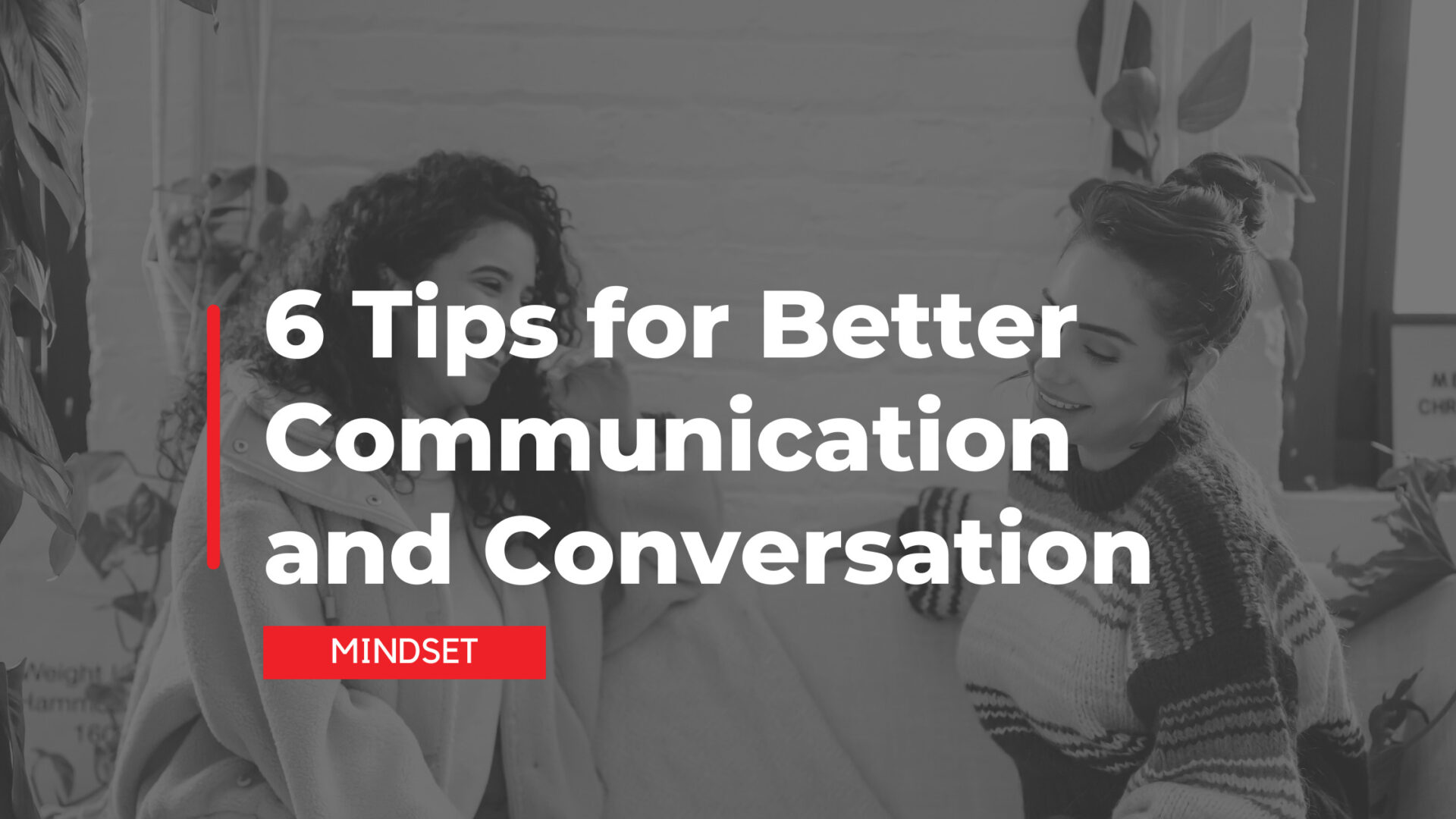
6 Tips for Better Communication and Conversation
Being a strong communicator and holding good conversation is a powerful tool in both your professional and personal life. The key to great communication and conversation is pretty simple though, and we can all take the time to master it. Here are 6 tips to get you started.
1. Listen
This one is super important and we often hear successful people mention it. The focus should be to really hear and process what the other person is saying— don’t just nod halfheartedly while you’re waiting for your turn to talk.
When we do all the talking it gives us a sense of control, we are the centre of attention, and it gives us the ability to boost our own identity. This is not what we are looking for in a successful engagement with another person. Listening takes effort and energy and is crucial for great conversation and relationship building.
“Most of us don’t listen with the intent to understand. We listen with the intent to reply.”
Steven Covey
2. Spare the details
Sure there is a time and place for providing every single detail of a story or event, but generally, it’s really not required and can be too much to take in (or boring). People don’t care about the little details – the years, names, dates, etc. Leave them out.
3. Don’t equate your experiences with others
Most often your experiences are not the same, no matter what the situation. Everyone is unique in their situations and how they feel and most importantly it’s not about you. Sometimes bringing up a relevant experience seems like an effective way to show sympathy and understanding. Resist the urge to say ‘I know exactly how you feel’, because you might not. Unless you’re being asked for advice, it’s usually best to be a good, sympathetic ear rather than talking about yourself.
4. Be 100% present
Meaningful conversation and communication deserve your full attention—not just an occasional glance up from your Instagram feed. Be in that moment with the other person. Don’t think about the rest of your day or anything else outside of that conversation. If you don’t want to have a conversation, don’t. Commit fully, or excuse yourself from the conversation.
5. Be flexible with your opinions
Enter each conversation with the belief that you can learn something new. If you’re open to a conversation, you need to be open to other people’s ideas. Don’t expect to state your opinions without any sort of back-and-forth discussion. Phrases like ‘I hadn’t thought of it that way’ and ‘that’s an interesting perspective’ are helpful ways to manage differences of opinion. When you try to enforce your opinion the conversation turns into a speech.
6. Ask questions
Showing interest in another person is a great way to liven up the conversation and build positive rapport. You can do this by asking open-ended questions such as ‘why do you think that happened?’ or ‘how did that affect you?’. These types of questions result in deeper and more thoughtful answers. Have the other person describe what they are feeling, thinking, or expressing and try to limit yes/no responses. The truth is that people like to talk about themselves and share their stories so open the space for them to do that and you are bound to gain a positive outcome.
Reference:



